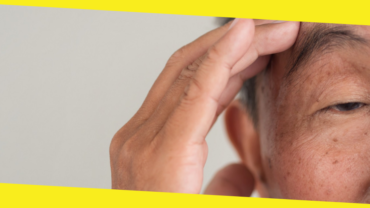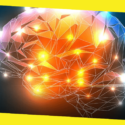An Exploration of Alternative and Complementary Therapies for Migraines in Canada

Migraines are a common neurological condition affecting approximately 10% of Canadians. It is a disabling and chronic disease that can greatly impact the quality of life of those who suffer from it. While conventional treatments such as prescription medications are often prescribed, many individuals are turning to alternative and complementary therapies to help manage their symptoms. This article will explore the different types of alternative migraine medication Canada, complementary therapies, and their potential benefits.
Contents
ToggleAcupuncture
Acupuncture is a traditional Chinese medicine practice that involves inserting thin needles into specific points on the body to stimulate energy flow. It is based on balancing the body’s energy flow to promote healing and alleviate pain. Several studies have suggested that acupuncture may be an effective treatment for migraines, and the Canadian Headache Society recommends it as a complementary therapy.
A 2012 review of randomized controlled trials found that acupuncture was more effective than sham acupuncture or no acupuncture for reducing the frequency and intensity of migraines. Another study published in the Journal of the American Medical Association found that acupuncture was as effective as topiramate for preventing migraines.
Chiropractic Care
Chiropractic care is a complementary therapy that manipulates the spine and joints to help alleviate pain and improve the body’s function. Some chiropractors specialize in treating migraines and may use spinal adjustments, massage therapy, and other techniques to help reduce the frequency and severity of migraines.
A 2011 study found that chiropractic care effectively reduced some patients’ migraines’ frequency and intensity. However, more research is needed to understand chiropractic care’s effectiveness for migraines fully.
Massage Therapy
Massage therapy is a complementary therapy that involves manipulating the body’s soft tissues to help reduce pain, tension, and stress. It is often used to help relieve the muscular tension and stress that can contribute to migraines.
Several studies have suggested that massage therapy may be effective in reducing the frequency and intensity of migraines. A 2006 study found that regular massage therapy significantly reduced the number of migraines in chronic migraine sufferers. Another study published in the International Journal of Therapeutic Massage & Bodywork found that massage therapy effectively reduced the severity of migraines and improved sleep quality.
Mind-Body Therapies
Mind-body therapies, such as yoga, meditation, and biofeedback, are complementary therapies that focus on the connection between the mind and body. They aim to help individuals learn how to control their thoughts and emotions to manage their symptoms and improve their overall well-being.
Several studies have suggested that mind-body therapies effectively reduce the frequency and intensity of migraines. A 2016 study published in the Journal of Headache and Pain found that yoga effectively reduced the frequency and intensity of migraines. Another study published in the journal Headache found that biofeedback effectively reduced the frequency and severity of migraines.
Herbal Supplements
Herbal supplements are complementary therapy that uses natural products, such as herbs and vitamins, to help manage health conditions. Some individuals with migraines may use herbal supplements to help prevent or alleviate their symptoms.
Butterbur is a herbal supplement that effectively reduces the frequency and severity of migraines. A 2004 study published in Neurology found that butterbur was more effective than a placebo in reducing the frequency of migraines. Feverfew is another herbal supplement that has been shown to be effective in reducing the frequency and intensity of migraines. A 2004 review of randomized controlled trials found that feverfew was more effective than a placebo in reducing the frequency of migraines.
However, it is important to note that not all herbal supplements are safe or effective for migraines. Some herbal supplements may interact with prescription medications or have harmful side effects. Speaking with a healthcare provider before taking any herbal supplements is important.
Conclusion
Migraine medication Canada’s Alternative and complementary therapies can effectively reduce the frequency and severity of migraines. However, it is important to note that not all treatments are effective for everyone, and some may not be safe for certain individuals. To ensure their safety and effectiveness, it is important to speak with a healthcare provider before trying any new therapies.
In addition, it is important to note that alternative and complementary therapies should not be used as a substitute for conventional treatments such as prescription medications. These therapies can be used with conventional treatments to help manage symptoms and improve overall well-being. To get more information on migraine medication or therapies, contact experts today.
Recommended For You
Alzheimer’s Disease: Can You Prevent It?
Most Inside
Most Inside offers high-quality recommendations and valuable updates to enhance all aspects of your life, providing premium guidance and enriching experiences.




